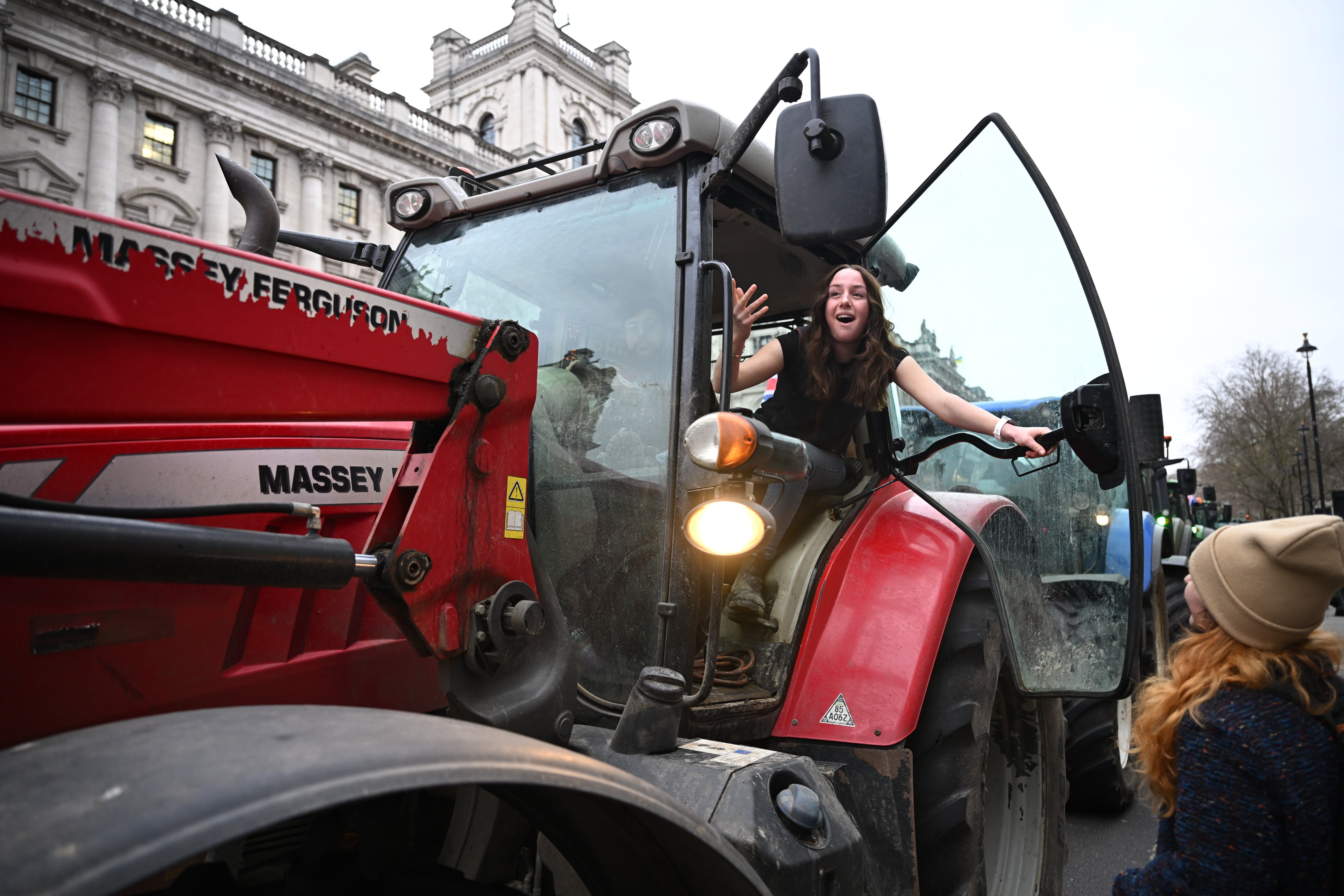Loophole used by super rich to avoid tractor tax unavailable to many family farms
Many family farms will be unable to benefit from a widely used tax loophole to avoid inheritance tax
Most family farms will not be able to benefit from a loophole that is used by the super rich to avoid inheritance tax, meaning smaller estates are likely to be hit especially hard by the government’s tax raid.
In order to avoid being hit with the levy, a widely used tactic by people facing inheritance tax is to pass down assets seven years before death - but many family farms will be unable to do so as a result of the ‘gifts with reservation’ clause.
The clause means that if a farmer passes down their estate but still benefits from it by either living on the property or using the returns to fund their lifestyle, they will still be taxed on it.
However, wealthy investors who have bought up farmland are unlikely to be living on the property, meaning they can pass down the assets and benefit from the loophole.
It comes despite the government claiming the changes to inheritance tax were introduced to discourage wealthy figures, like entrepeneur James Dyson and TV personality Jeremy Clarkson, buying up agricultural land to bypass inheritance tax.

Stuart Maggs, a tax lawyer at Howes Percival, told the Environment, Food and Rural Affairs Committee that it means family farm owners simply cannot plan for the inheritance tax changes.
“This is going to be unaffordable”, he warned. “Farms are going to have to sell land or sell up and it’s going to happen a lot”.
“This change coming in now has really hit home to farmers because they’re in a situation where there’s nothing they can do about it”, Mr Maggs said.
“They can’t give away and survive seven years, and even if they could give away, it wouldn’t be effective.”
He explained: “There are rules called gifts with reservation and that means if you give something away, but you still continue to enjoy a benefit from it – i.e. if you’re one of three families living on the same farm – it’s paying for mum who is a widow and its paying for the parents of the children who are coming up - then mum cant give away the farm without being taxed as if she still owned it on the day of her death.
“So she can’t plan - which means this charge will still be a burden. With farms getting a rate of return of about half a per cent to one per cent, it simply means this is going to be unaffordable.
“So farms are going to have to sell land or sell up and its going to happen a lot.”

It comes hundreds of farmers arrive in Westminster to protest the inheritance tax changes for the second time.
The demonstration, organised by Save British Farming and Kent Fairness for Farmers, will see farmers bring their vehicles to the streets of Parliament ahead of prime minister’s questions on Wednesday.
Last month, around 13,000 people rallied in London against the changes to inheritance tax outlined in Rachel Reeves’s Budget which will see farmers paying a 20 per cent levy on agricultural assets worth more than £1m - half the usual death duty rate of 40 per cent, having previously been exempt.
Farming sector leaders say the move will directly impact family farms which are already struggling under the weight of EU competition and challenges presented by extreme weather.
But Ms Reeves and environment secretary Steve Reed have insisted that the changes are “fair and proportionate” and will only affect 28 per cent of farms.
The government insists that farms with more than one owner and using normal inheritance tax allowances means in reality only estates valued at £3 million will be taxed under the new scheme.
The Treasury has been contacted for comment.
Join our commenting forum
Join thought-provoking conversations, follow other Independent readers and see their replies
Comments